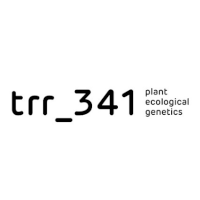"Photo: Shutterstock.com"
Genetics of adaptation to novel environmental challenges
The CRC TRR341 "Plant Ecological Genetics" is a transregional collaborative research centre funded by the German Research Foundation (DFG). Researchers from the University of Cologne (UoC) and the Heinrich-Heine-University (HHU) in Düsseldorf team up with their colleagues from the Max Planck Institute for Plant Breeding Research (MPIPZ) , the Ruhr University in Bochum (RUB), the Philipps University in Marburg (UMR), the University of Potsdam (UP), and the Julius Kühn-Institut in Sanitz (JKI) to work in identifying the genetic mechanisms of trait variation promoting plant adaptation to environmental changes.
The CRC TRR341 is organized in two scientific areas counting about 20 research projects. The integrated graduate programme in Ecological Genetics (GEcoGen) provides early-career researchers a training environment for developing scientific and professional expertise in both Molecular Biology and Ecology.
What are the genetic underpinnings of plant adaptation to global environmental change?
Ecosystems worldwide are threatened by anthropogenic degradation, fragmentation and climate change. Plants are part of almost all food webs and critical for the functioning of ecosystems. Thus, their ability to adapt to environmental changes is crucial. In the CRC TRR341 we dissect the genetics of plant adaptation to their environment. Using state-of-the-art genetic technologies with a combination of field surveys and controlled environmental manipulations, we seek to identify the genetic variation underlying survival and reproduction in plants growing under altered resource availability, abiotic stress and plant-plant competition pressures.
Ultimately, our projects will provide key information on the traits, genes and genetic variants promoting adaptations to global environmental change in plants, and assist future efforts to preserve natural ecosystems.
